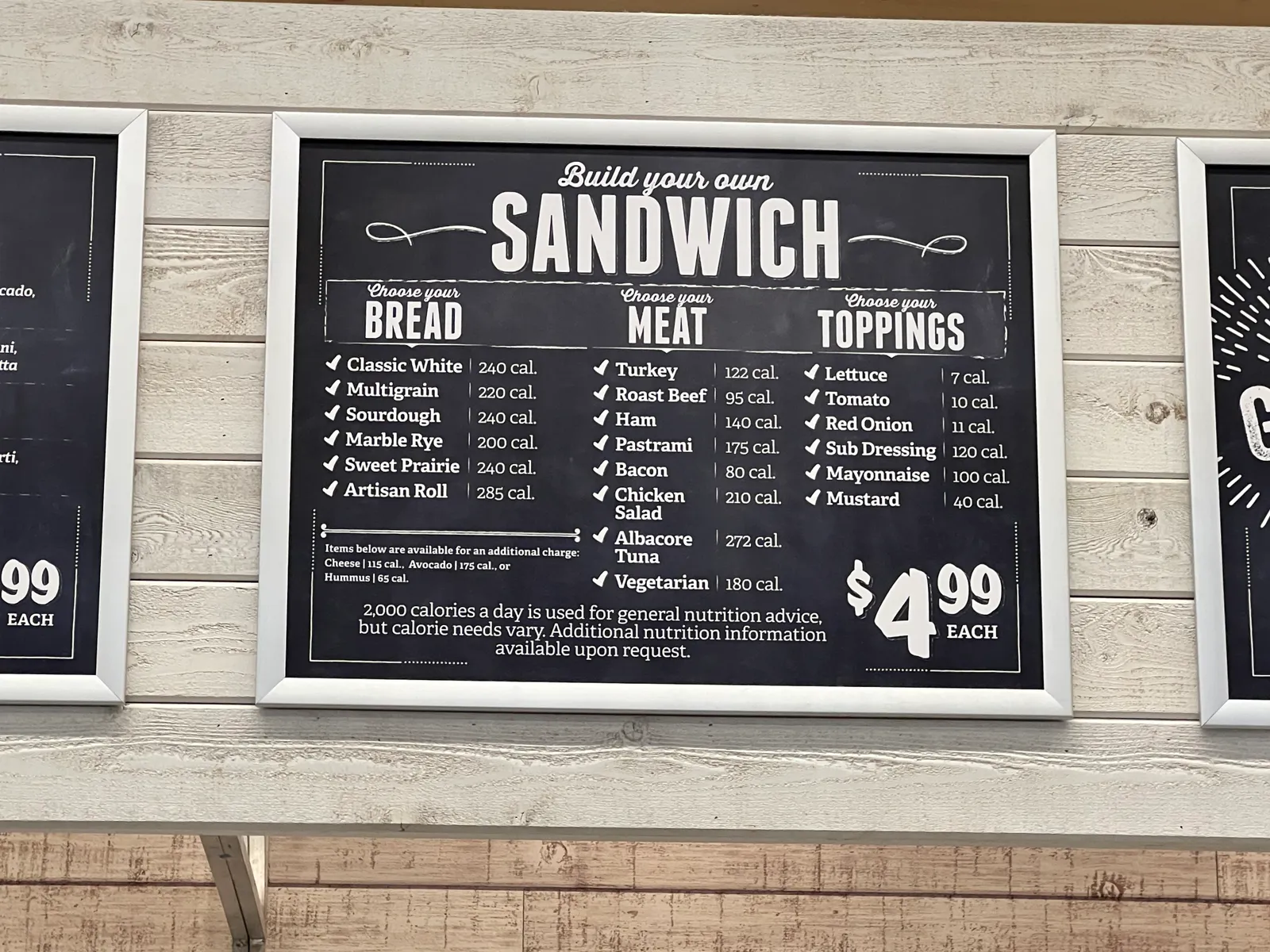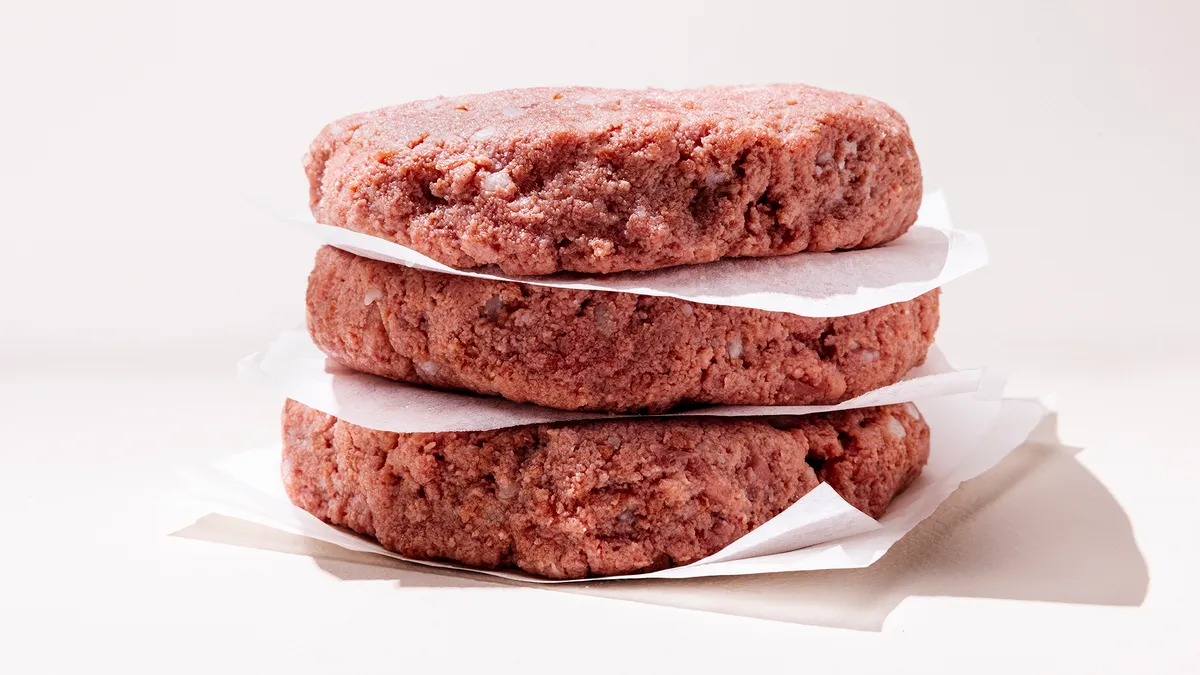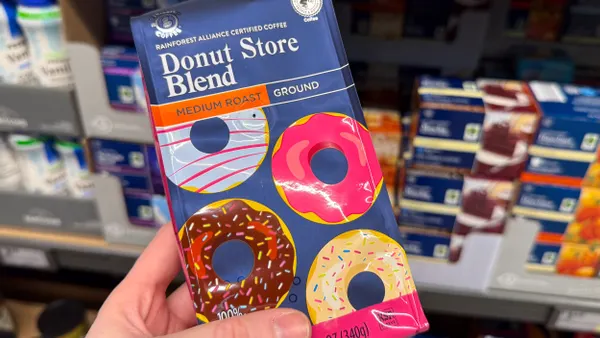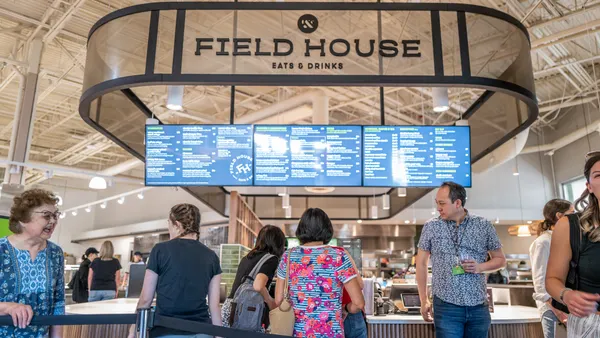The Friday Checkout is a weekly column providing more insight on the news, rounding up the announcements you may have missed and sharing what’s to come.
Grocers — are you ready to sell cultivated meat?
The USDA earlier this week issued grants of inspection to Upside Foods and Eat Just, two California-based makers of cell-cultivated chicken products, allowing cultivated meat to enter the U.S. market, sister site Food Dive reported.
The U.S. joins Singapore, which has permitted the sale of cultivated meat since 2020, in being an early adopter of meat that doesn’t require animals to be slaughtered.
How will consumers stateside respond to the option of eating lab-grown meat made from cells extracted from an animal? How will grocers carve out shelf space and merchandise these products?
Like “plant-based” vs. “vegan,” cultivated meat poses the challenge of how grocers and brands describe the product’s label and educate consumers, with the added hurdle of what language regulatory agencies approve. Earlier this month, for example, the USDA approved the label of “cell-cultivated chicken” for chicken grown from cells in bioreactors produced by Upside Foods and Eat Just — marking the first label approval for this emerging category, Food Dive reported.
While grocers have often linked plant-based items with sustainability attributes, it remains unclear if they will do the same for cultivated meat. Cultivated meat could create less air pollution, as well as use less land and less water compared to conventional beef production, per a life cycle analysis by CE Delft commissioned by the Good Food Institute and European animal rights group GAIA. However a preprint, not yet peer-reviewed life-cycle assessment conducted by researchers at the University of California, Davis, found that lab-grown meat’s environmental impact is likely to be higher than that of traditional retail beef based on current and near-term production methods.
This year’s Power of Meat report from FMI — The Food Industry Association (FMI) spotlighted a divide in consumer appetite for the option. One-third of surveyed meat eaters (32%) said they would be willing to try cultivated meat while more than half (52%) said they would not, with answers varying across population groups. Unsurprisingly, millennials and those who consider planet, people and animal welfare in their purchasing decisions are more likely to try cultivated meat, FMI said.
Meanwhile, plant-based sales have been declining, with dollar, unit and volume sales for both frozen and refrigerated products down in 2022 compared to 2021, per IRI data cited by FMI.
Could cultivated meat follow a similar trajectory and end up as a niche category? With the impact of high inflation weighing on consumers even as food price hikes taper off, pricing and affordability of cultivated meat will likely be top of mind for consumers.
In case you missed it
Pop Up Grocer pops into Nordstrom
The traveling grocery seller debuted a location at Nordstrom’s 57th Street flagship store in New York City on Tuesday, and plans to arrive in seven other locations in the department store chain on July 7.
The temporary stores will each sell a range of products, including nonperishable goods, snacks and “merch exclusively from emerging brands,” Nordstrom said. The New York Pop Up Grocery location will remain open through Sept. 4, while the other shops, which will be in Nordstrom stores in California, Illinois, Texas, Virginia and Washington state, will close Aug. 6.
H Mart heads to Utah
The Asian supermarket chain plans to open its first store in the state at the site of a former Kmart location in the Salt Lake City suburb of West Jordan, Utah, according to local TV station ABC4. The ethnic chain hopes to open the store by the end of 2023, the channel reported.
Earlier this week, officials in Dallas gave a green light to a package of financial incentives to bring an H Mart to the Texas city, according to a local Patch report. The store would be the third H Mart location in the region, joining existing stores in Carrollton and Plano, Texas.
Walmart partners with NBCUniversal
The retail giant said last week it is working with the broadcaster to test the viability of marrying live sports programming with the Walmart Connect retail media network. Through the trial, advertisers will be able to reach viewers of sporting events streamed by NBCUniversal using Walmart Connect‘s targeting capabilities and close-loop measurement tools.
Number of the week: $15 billion
That’s the level of incremental value standardization could bring retail media networks, marketers and ad agencies, according to a McKinsey & Company analysis published in a recent Albertsons white paper. Ranging from $5 billion to $15 billion, the cumulative value includes an increase in ad spending as well as efficiencies in data analytics and creative operations.
Impulse Find
Remember the Sprouts $5 deli sandwich that went viral in summer 2022? While it may not be at the top of your TikTok feed anymore, its hashtag (#sproutssandwich) has over 35 million views and continues to grow weekly. The lunchtime offering is at every Sprouts Farmers Market alongside the specialty grocer’s sushi offering. And while the sushi is not quite as viral as its sandwich sibling (with #sproutssushi having a mere 1.7 million views), it is growing in popularity thanks to being discounted to $5 every Wednesday.












